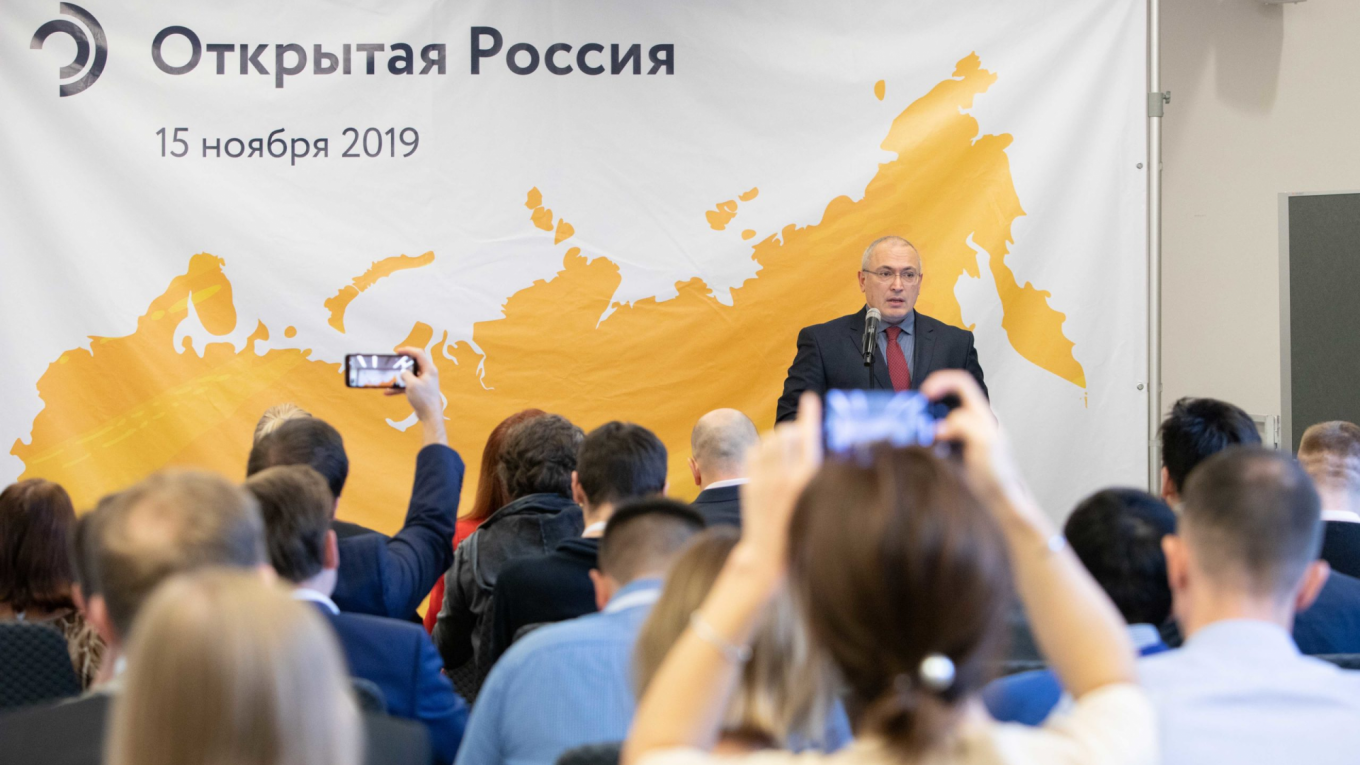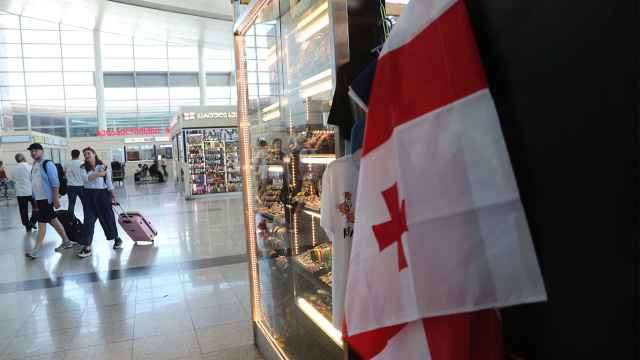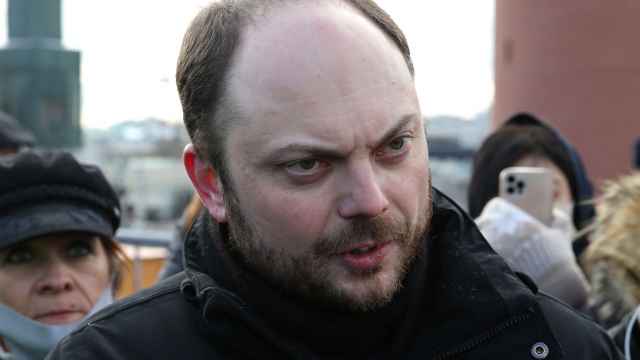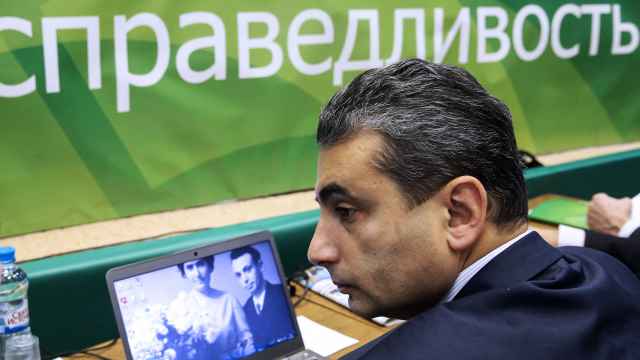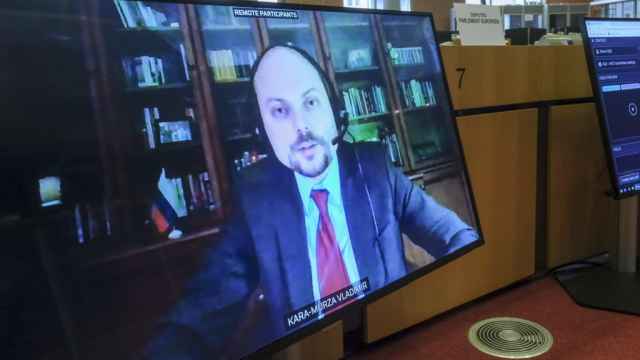Open Russia, an opposition movement established by exiled Kremlin critic Mikhail Khodorkovsky, announced its closure Thursday to avoid jail for supporters ahead of parliamentary elections.
Executive director Andrei Pivovarov linked the decision to bills advancing through Russian parliament tightening criminal punishment for Russians who support and work for “undesirable” organizations. Open Russia was labeled “undesirable” in 2017 in line with a law targeting foreign groups accused of political meddling.
“‘Otkrytka’ doesn’t exist as an organization anymore,” Pivovarov said, referring to Open Russia by Russian shorthand.
“We’re doing this to avoid criminal prosecution. The elections are coming soon and the government is ready to do anything to prevent independent politicians,” he said.
The Kremlin, commenting on the decision later Thursday, denied that it is removing opponents ahead of critical elections to the lower house of Russian parliament, the State Duma, this September.
“Our political arena is rich and multifaceted. Someone’s departure doesn’t mean the political arena is being cleared,” President Vladimir Putin’s spokesman Dmitry Peskov told reporters.
“Undesirable” organizations are immediately banned and their employees face prison terms under the controversial 2015 law.
Pro-Kremlin lawmakers are currently advancing two bills through the State Duma that ban Russians from cooperating with these groups anywhere in the world and allow members to be jailed for up to four years after a first administrative infraction instead of a second under current laws.
Khodorkovsky, a former oil tycoon who fled Russia after a decade in jail on fraud charges widely viewed as politically motivated, formed Open Russia as a pro-democracy NGO in 2001. The organization was closed between 2006 and 2014, until Khodorkovsky relaunched the initiative after his release from prison in late 2013.
Open Russia’s self-liquidation comes one month after jailed Kremlin critic Alexei Navalny’s political network self-disbanded ahead of an anticipated court ruling to declare it “extremist.”
Duma lawmakers also passed legislation this week banning members of “extremist” organizations from elections. An upper-house Federation Council vote of approval and Putin’s signature are needed for the ban to become law.
A Message from The Moscow Times:
Dear readers,
We are facing unprecedented challenges. Russia's Prosecutor General's Office has designated The Moscow Times as an "undesirable" organization, criminalizing our work and putting our staff at risk of prosecution. This follows our earlier unjust labeling as a "foreign agent."
These actions are direct attempts to silence independent journalism in Russia. The authorities claim our work "discredits the decisions of the Russian leadership." We see things differently: we strive to provide accurate, unbiased reporting on Russia.
We, the journalists of The Moscow Times, refuse to be silenced. But to continue our work, we need your help.
Your support, no matter how small, makes a world of difference. If you can, please support us monthly starting from just $2. It's quick to set up, and every contribution makes a significant impact.
By supporting The Moscow Times, you're defending open, independent journalism in the face of repression. Thank you for standing with us.
Remind me later.


